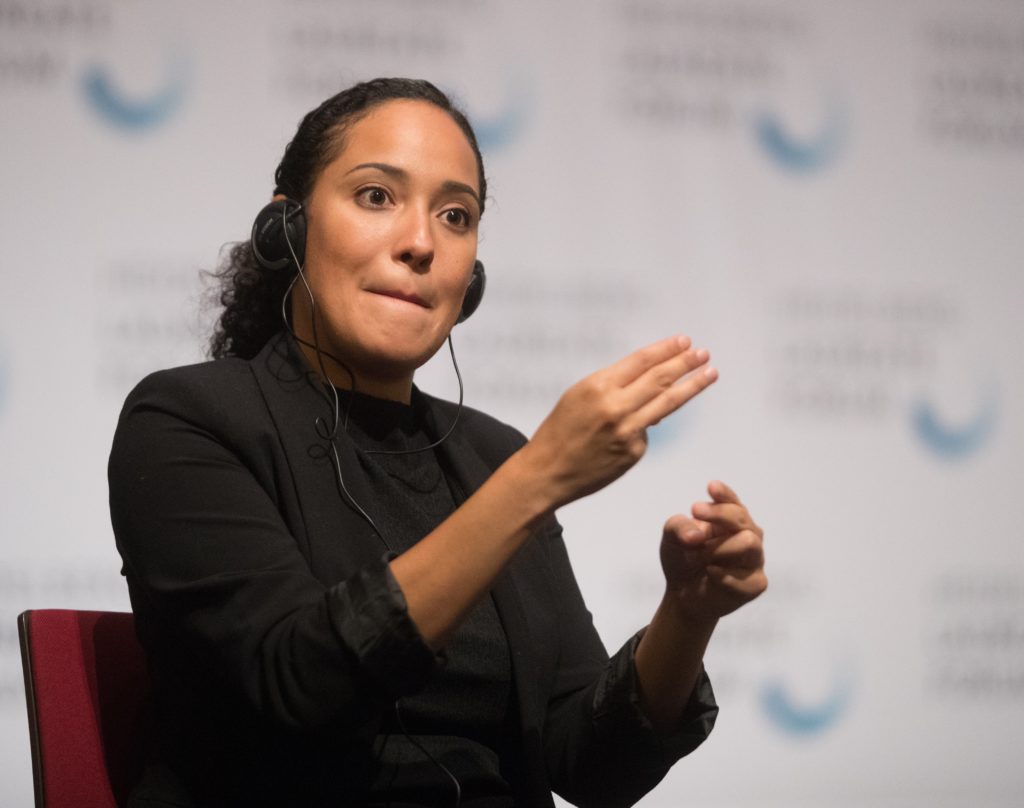A matter of interpretation: Sign Language at the Heidelberg Laureate Forum
BLOG: Heidelberg Laureate Forum

Following the talks at the Heidelberg Laureate Forum requires concentration, with the brain fully engaged, under the best of conditions. Even most native speakers will need to stretch a bit when they come across less familiar concepts – and the mix between pure mathematics and computer science means that almost every talk will be unfamiliar to at least some part of the audience.
Those who are not native speakers are at some additional disadvantage, but in most cases, moderately so – for instance, given that English is the language of science, and of most modern scientific publications, I would not be surprised if almost all non-native speakers among the young researchers found it easier to explain their own research in English rather than in their native language.
And then there are the language challenges faced and overcome by Larwan Berke, a Phd student in computer science at the Rochester Institute of Technology, and the team of American Sign Language (ASL) interpreters working with him at this HLF.

I had learned a bit about the challenges of translating complex scientific texts when helping to translate popular science book into German, so I asked the ASL interpreters, Lisa Reynolds and Sheyla Perez (Overseas Interpreting) how they coped with the, let’s face it, rather special requirements of mathematics and computer science.
As it turned out, both are specialists, but for ASL interpretation for medical topics. The HLF work required a lot of preparation on their part, starting with the talk abstracts provided by the HLF organizers and involving both Google searches to understand the complex concepts involved and communication with the ASL community. Lisa and Sheyla agree that this was teamwork in more than one sense – they did not just prepare to interpret for Larwan; the preparation crucially relied on Larwan’s participation. He, after all, needed to bring his knowledge of computer science and mathematics to the table.

Looking at the ASL interpretation – and of course Lisa and Sheyla are interpreting for Larwan as we talk during the first Monday coffee break – I am struck by how similar this situation is to listening to a language one doesn’t actively know, but that has some kinship with a language one is familiar with. I’m reminded of listening to, say, an Italian speaker while knowing only some French: some of the gestures look familiar, and evidently build on a shared repertoire of fairly universal gestures – when Sheyla points downwards for “deep” as in the above image, for instance.
For the ASL interpreters, flexibility is a must when it comes to topics as complex as these – and they regularly discuss the different options for pertinent concepts with Larwan to pick the best for use at HLF. Here is Lisa signing the signs for “encryption” and “decryption” they decided to use:
For Lisa and Sheyla, this is hard work both intellectually and physically. That is why they work in shifts, one of them as the primary interpreter, who sits in front and signs, facing the audience (in particular, Larwan), while the other sits on the side as supporting interpreter, keeping an eye of things and making sure no information gets lost. (A third colleague is part of the team, but is currently taking a well-deserved break.) Good audio is a must, and both interpreters are wearing headsets feeding them audio from the lecture hall’s sound system. Larwan, in turn, must switch his attention between the slides and the sign language.
Mathematics and computer science are universal, and are meant to transcend culture and language, accessible to all rational minds. It’s good to see people like Lisa, Sheyla and Larwan who put that lofty aspiration into practice here at HLF!

